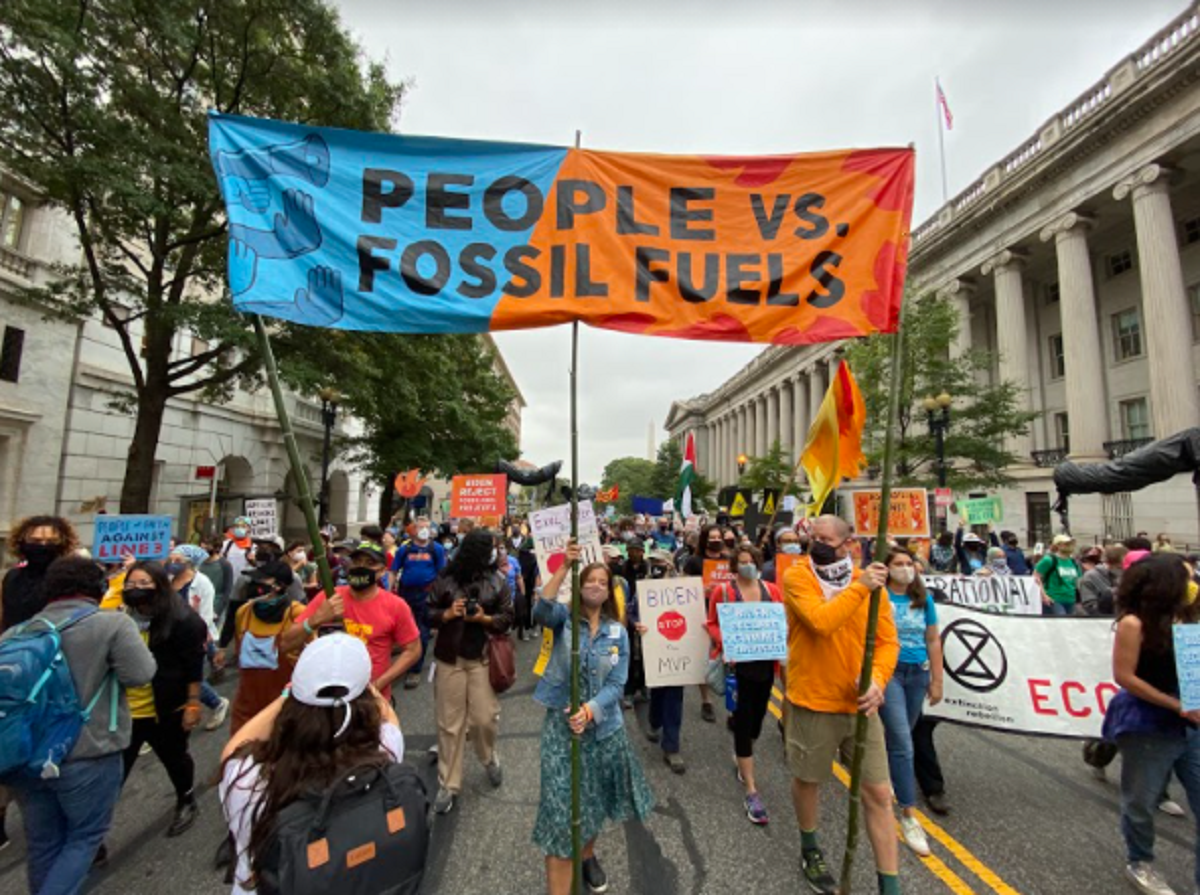Earlier this month, thousands of people went to Washington, DC, to demand that President Biden declare a climate emergency and stop fossil fuel projects. The People vs. Fossil Fuels week of action, which included hundreds of arrests each day, was led by Indigenous leaders and representatives from frontline communities from fossil fuel fights across the nation, including the struggle against oil and gas drilling on Indigenous lands; fights against the Mountain Valley Pipeline, Line 3, Dakota Access, Mariner East and other pipelines; and the struggles to stop oil and gas export facilities.
While all of these fights are critical, I want to focus on the one to stop the expansion of oil and gas exports. I live on Texas’s Gulf Coast, and for over six years, I’ve been organizing my community to prevent several proposed fracked gas projects in the Rio Grande Valley (RGV) -- Annova LNG, Texas LNG, Rio Grande LNG, and the associated Rio Bravo Pipeline. These projects would be devastating for the region, threatening the rights of the Carrizo/Comecrudo Tribe of Texas, community health, wildlife, and the climate.
This year, the dominoes began to fall and forecast the demise for these LNG projects. This spring, Annova LNG was cancelled, a major testament to the years and years of community opposition that ultimately led to the company withdrawing its certificate with the Federal Energy Regulatory Commission (FERC) in March.
In early August, the US Court of Appeals for the District of Columbia affirmed what my community and others have been saying for years about the other two remaining projects, Rio Grande LNG, Rio Bravo Pipeline, and Texas LNG: Regulators failed to conduct an adequate analysis of the climate and environmental justice impacts of these projects. This ruling was in direct response to a legal challenge filed by the Sierra Club, the city of Port Isabel, and "Vecinos para el Bienestar de la Comunidad Costera," a group of local residents from Laguna Heights represented by Texas RioGrande Legal Aid.
And the domino effect extends beyond Texas. In Oregon, Indigenous communities, local landowners, and environmental activists have been organizing to stop the construction of Jordan Cove, a proposed LNG project, for over 15 years. After Oregon officials denied the project’s latest permit applications -- the latest in a string of setbacks -- company officials declared defeat this spring, stating that the process for the proposed project was on hold.
The Biden administration must see the writing on the wall by now. These polluting projects, with widespread community opposition, shaky financing, and legal roadblocks, should never be built.
Yet there are still more than 20 gas export facilities proposed for the Gulf Coast, many of which would disproportionately affect communities of color in Texas and Louisiana. Despite the Biden administration’s stated commitments to environmental justice and climate action, the administration has signaled a troubling openness to fracked gas exports, particularly if the proposed facilities include carbon capture and storage (CCS).
When it comes to LNG, CCS is an unproven, virtually unregulated,and costly technology, being touted by the fossil fuel industry to justify more investments in gas infrastructure. In reality, it is a false solution to the climate crisis. Massive amounts of methane and carbon pollution would still be emitted in the extraction, transportation, and eventual combustion of the gas overseas. Rio Grande LNG plans to use carbon capture storage at their facility, which would do nothing to stop harmful toxic air pollution from spewing into my community and harming our health.
Ultimately, CCS will do nothing to reduce emissions, and every dollar invested in it is a dollar we are not investing in real climate solutions. The latest version of the International Energy Agency’s World Energy Outlook, released yesterday, finds that new LNG export facilities are likely to become stranded assets, making them financial liabilities in the amount of an estimated $75 billion.
President Biden traveled to impacted communities after Hurricane Ida made landfall last month, and delivered the message that the climate crisis is making these storms worse and more frequent. But unless the Biden administration backs up these statements with real action, they will remain mere talking points and provide no real relief for communities that continue to suffer from climate disaster after climate disaster.
We cannot afford to lock in decades of continued fossil fuel production. President Biden’s climate legacy will be determined by his administration’s willingness to listen to local residents most impacted and put a stop to these fracked gas projects.
It’s time for Biden to say no to LNG in the RGV -- and everywhere else it’s proposed -- once and for all.
